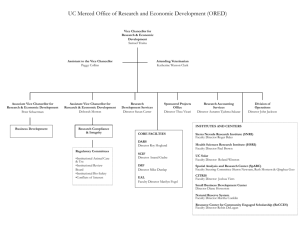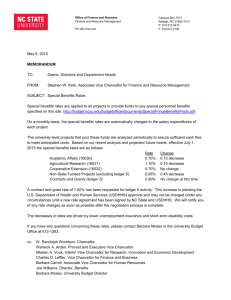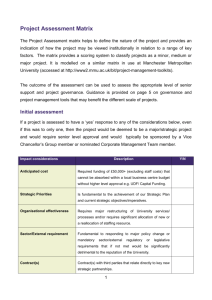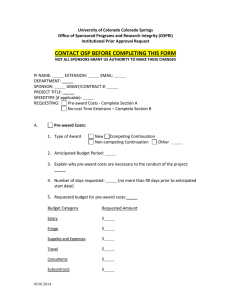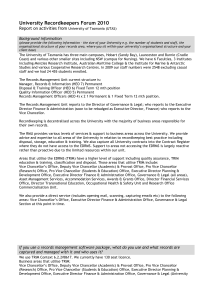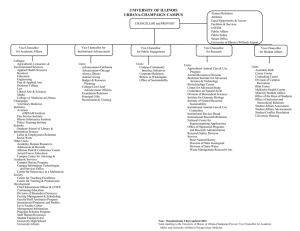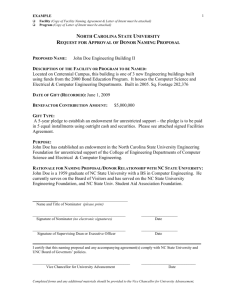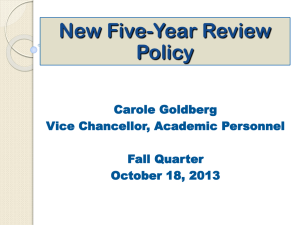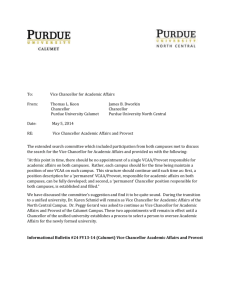Crisis Management Plan - Griffith Policy Library
advertisement
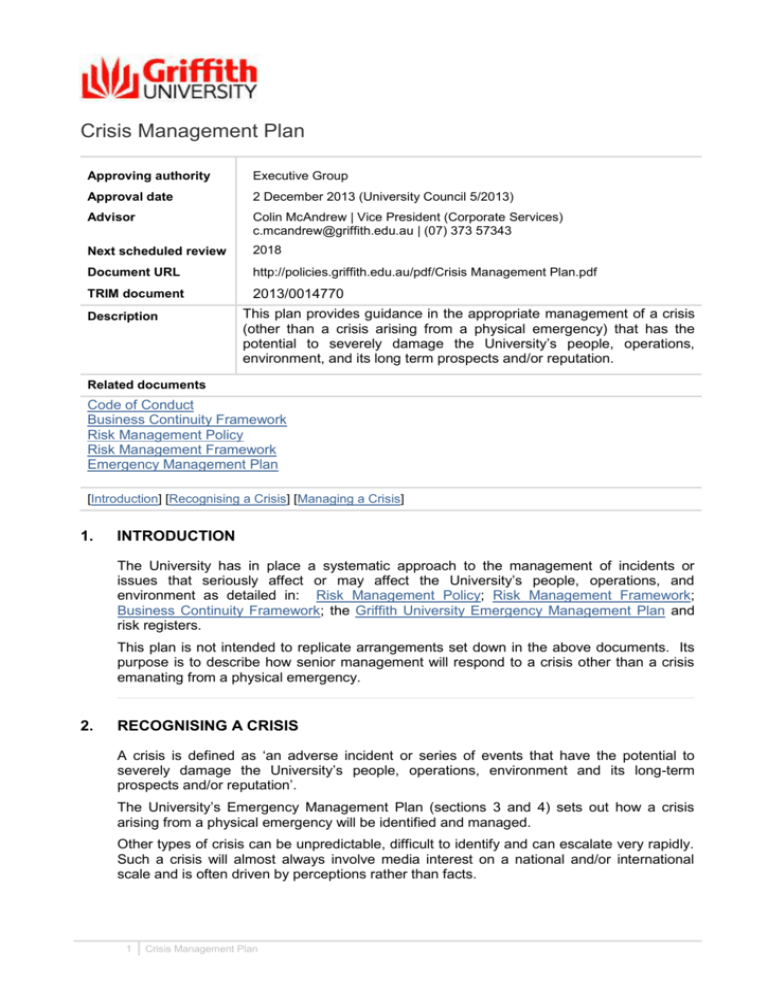
Crisis Management Plan Approving authority Executive Group Approval date 2 December 2013 (University Council 5/2013) Advisor Colin McAndrew | Vice President (Corporate Services) c.mcandrew@griffith.edu.au | (07) 373 57343 Next scheduled review 2018 Document URL http://policies.griffith.edu.au/pdf/Crisis Management Plan.pdf TRIM document 2013/0014770 Description This plan provides guidance in the appropriate management of a crisis (other than a crisis arising from a physical emergency) that has the potential to severely damage the University’s people, operations, environment, and its long term prospects and/or reputation. Related documents Code of Conduct Business Continuity Framework Risk Management Policy Risk Management Framework Emergency Management Plan [Introduction] [Recognising a Crisis] [Managing a Crisis] 1. INTRODUCTION The University has in place a systematic approach to the management of incidents or issues that seriously affect or may affect the University’s people, operations, and environment as detailed in: Risk Management Policy; Risk Management Framework; Business Continuity Framework; the Griffith University Emergency Management Plan and risk registers. This plan is not intended to replicate arrangements set down in the above documents. Its purpose is to describe how senior management will respond to a crisis other than a crisis emanating from a physical emergency. 2. RECOGNISING A CRISIS A crisis is defined as ‘an adverse incident or series of events that have the potential to severely damage the University’s people, operations, environment and its long-term prospects and/or reputation’. The University’s Emergency Management Plan (sections 3 and 4) sets out how a crisis arising from a physical emergency will be identified and managed. Other types of crisis can be unpredictable, difficult to identify and can escalate very rapidly. Such a crisis will almost always involve media interest on a national and/or international scale and is often driven by perceptions rather than facts. 1 Crisis Management Plan A crisis may be triggered by internal or external issues, such as public safety, health concerns, or controversial academic activities. A crisis may also arise from public accusations of fraud and malpractice, public scandal or political controversy. Activities conducted by the University may attract the attention of government, regulators, interest groups, the public and the media and sometimes a simple emergency or minor issue becomes a crisis when it is insensitively or poorly managed. 3. MANAGING A CRISIS Incidents or events (other than physical emergencies) which could develop into a crisis may be identified by a range of people in the University. Where a senior staff member (Head of School / Office Director or above) becomes aware of a potential crisis they should immediately notify the Vice President (Corporate Services) who will be responsible for assessing the situation, in consultation with the Director, Marketing and Communications. They will be responsible for briefing the Vice Chancellor. The Vice Chancellor will alert the Chancellor and Deputy Chancellor and together will determine, on a case by case basis, when to inform University Council. Depending upon the situation the Vice Chancellor may appoint a public spokesperson or alternate spokespersons may be appointed, for example from the Police or Emergency Services. The Vice Chancellor will determine what arrangements and supports are needed to appropriately manage the crisis. The Vice Chancellor may direct the establishment of particular teams to provide support or handle particular aspects of the crisis, and/or may engage an external agency to assist with crisis management. A Crisis Management Team would normally be established to focus on crises that relate to strategic business or reputation issues. Members may be drawn from the University’s Executive, Deans, Directors, Marketing and Communications, Office of HRM and the Legal Services Unit. Where the crisis relates directly or personally to the Vice Chancellor, the Vice President (Corporate Services) and Director, Marketing and Communications will brief the Chancellor who will be responsible for determining what arrangements and supports are needed to appropriately manage the crisis. The Chancellor will inform University Council members of the situation and may convene one or more special meetings of University Council to consider the University’s response to the crisis. 2 Crisis Management Plan
